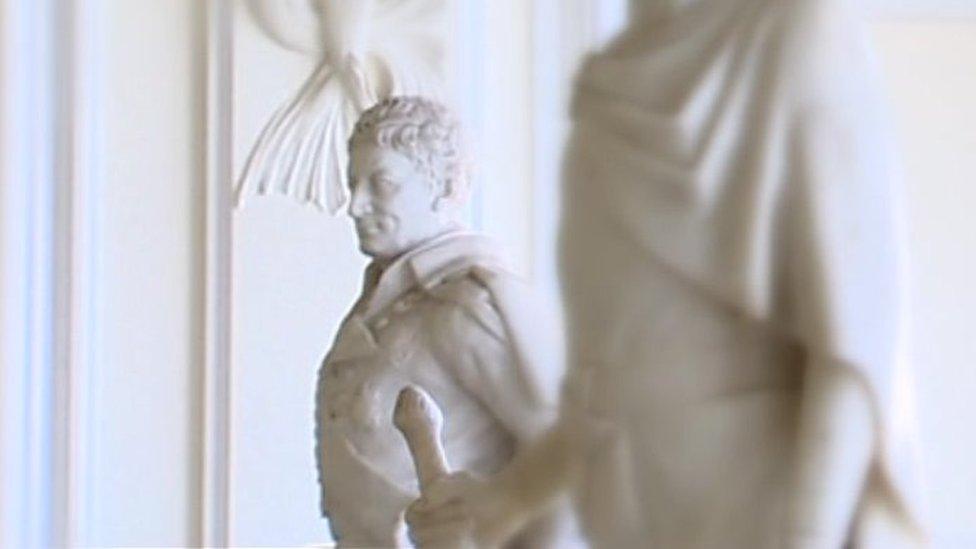Racism: 'Being Welsh means more than your skin colour'
- Published
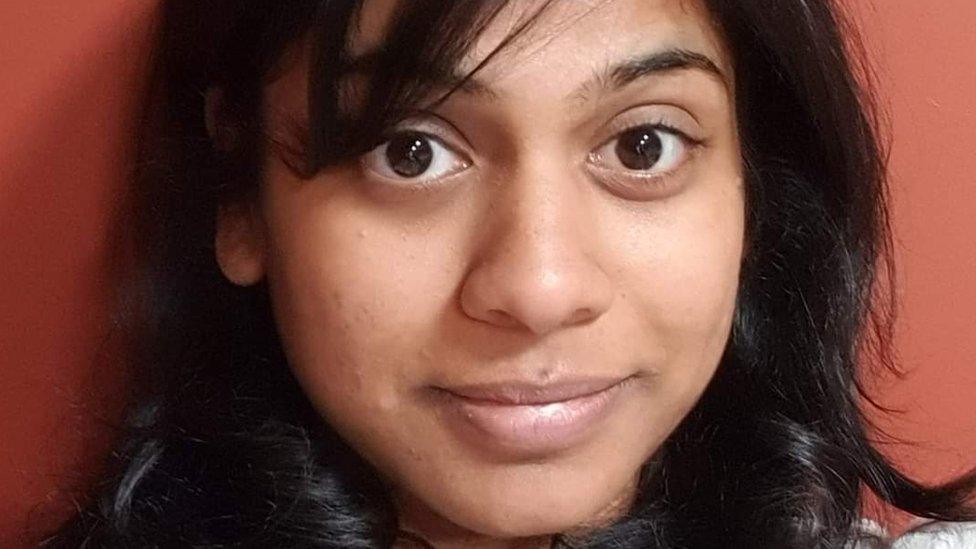
Nikita Jones says she had never experienced "this level of abuse" online before
A woman who was targeted with a barrage of racist and abusive messages online has called on social media companies to do more to tackle the issue.
Nikita Jones says she and others ended up reporting hundreds of accounts over the course of a few days, including users who challenged her right to call herself Welsh because of her Indian heritage.
North Wales Police are currently investigating the abuse, which included comments about her skin colour and an offensive cartoon.
Twitter has suspended some accounts and said "racist behaviour has no place" on their platform, though Ms Jones is unhappy many of the reported accounts remain active.
She says the abuse started last week when one user messaged her asserting that only people of a white Welsh ethnic background could consider themselves Welsh.
'Targeted harassment'
Ms Jones is originally from India but is now a British citizen and married to a Welshman and lives in north Wales.
When she challenged the comments, she began receiving dozens of abusive messages from other accounts in what "felt like a targeted attack".
"It was quite sinister but at the same time very exhausting," she said.

Nikita Jones feels that many of the offensive accounts can hide behind anonymity on social media
"I responded to a few to begin with but then I had to take a step back as it was clear this was targeted harassment of a racial nature.
"I got in touch with the police because some of the things were getting very personal."
Other Twitter users supported Ms Jones in reporting the accounts, and she also praised North Wales Police for their response so far.
"I had two officers on my doorstep within half an hour, they sat with me for almost two hours taking notes," she said.
"They've also been in touch three times since then to check that I'm OK and that I haven't received any more abusive harassment."
'No place for racism'
On the other hand she described Twitter's response to the hundreds of reports as "despicable", with less than a dozen accounts suspended permanently or temporarily in the days following the abuse.
"For the others, they said that this didn't violate their policies," she said.
"This is particularly concerning because they're a social media business that are allowing to platform hate and misinformation.
"They have an ethical responsibility to ensure they don't play a part in causing situations that lead to more damaging impact on global society.
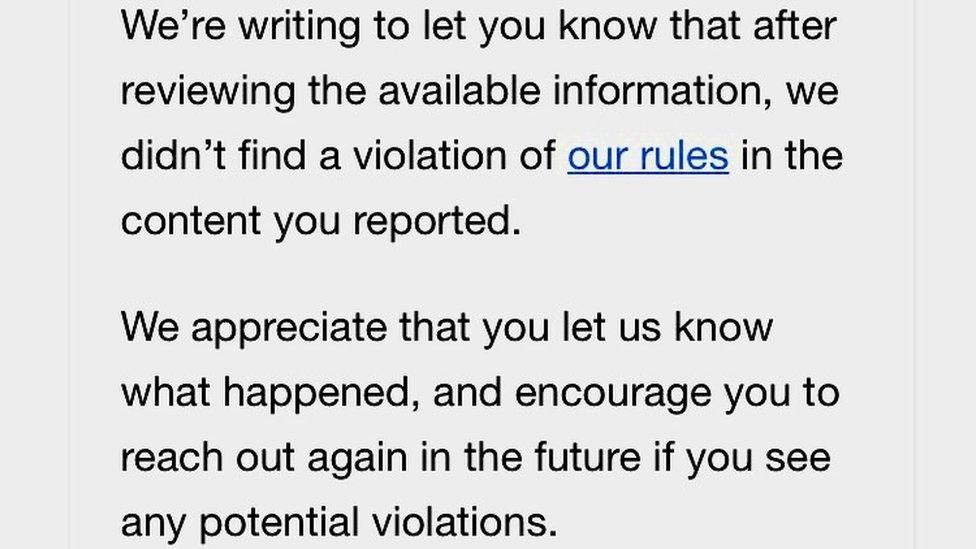
Twitter has suspended some of the accounts involved, but decided that others had not violated their rules
"If these individuals hide behind anonymous accounts they feel safe and comfortable spewing this level of abuse at others without any giving any thought to consequences or worry about being caught."
Twitter told BBC Wales that "a number of accounts" had now been suspended and that the company recently expanded their hateful conduct policy in dealing with abusive behaviour online.
"Racist behaviour has no place on Twitter," said a spokesperson for the company.
"We have clear policies in place that address abuse and harassment, violent threats and hateful conduct.
"If we identify accounts that violate any of these rules, we'll take enforcement action."
'More than just skin colour'
North Wales Police and Crime Commissioner Arfon Jones was one of those who messaged Nikita Jones on Twitter following the abuse.
He insisted the force would "do everything within our power... [to] prosecute those who commit hate crimes" and joined calls for social media companies to "do more to remove offensive and racist content posted online".
"Let's be clear - racism is illegal and platforms such as Facebook and Twitter all have a moral and legal responsibility to prevent them from being used to encourage and promote racism," he said.
A spokesperson for North Wales Police added that "hateful abuse online can leave victims with significant psychological harm, but can also lead to more serious physical offences".
"The force also has a dedicated cyber-crime team who have been set up to support and help victims, and work with social media companies to highlight the damage and significant effects of online hate and abuse."
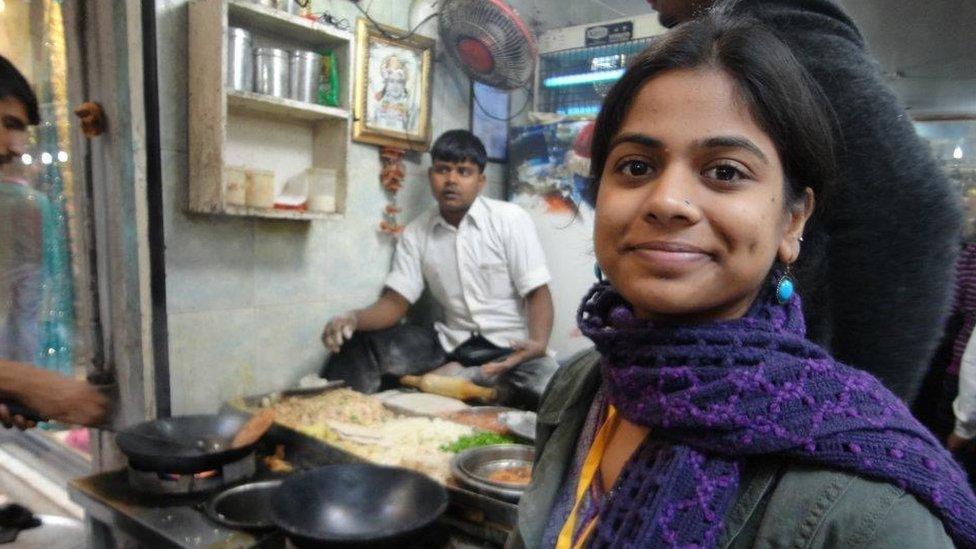
Nikita Jones now considers her national identity to be Indian and Welsh
Following her experience Nikita Jones is keen to emphasise the need to understand the difference between someone's race and their nationality.
"My message to these people is that being Welsh means more than your skin colour," she says.
"Being Welsh is a part of your belief systems, your love for the country and her people. It means to be proud of this country we call home.
"You have absolutely no right to deny me my national identity because of your own myopic understanding of the word.
"Calling yourselves ethno-nationalists doesn't change the fact that you're an ignorant, intolerant racist.
"Personally, I consider my national identity to be Indian and Welsh, something that is independent of my ethnic background."
Related topics
- Published3 August 2020
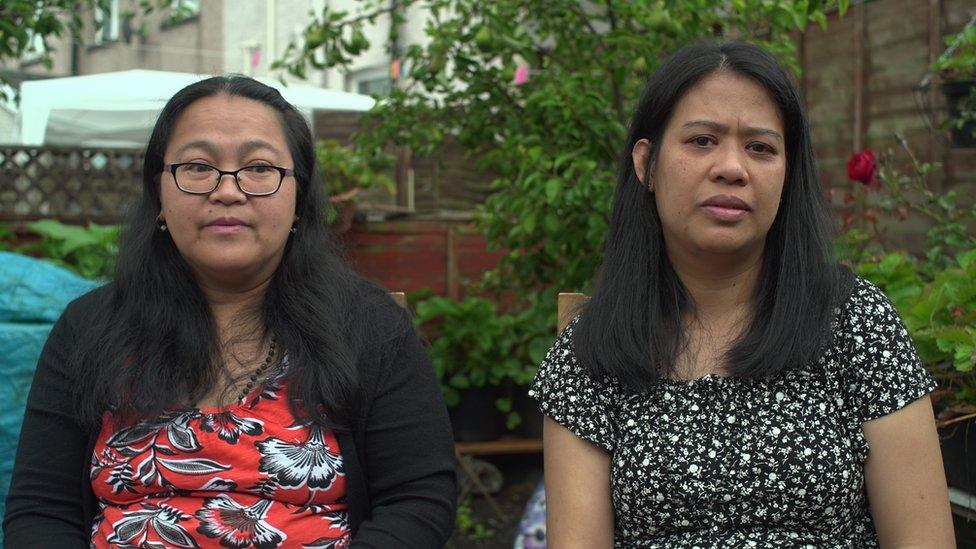
- Published27 December 2020

- Published11 July 2020
